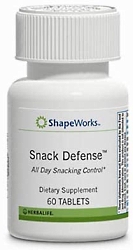Meta Title Tag for Search Engine Page Rankings
 The meta title tag is the first thing people see when they land on your page. If the title grabs their attention they get interested and read more.
The meta title tag is the first thing people see when they land on your page. If the title grabs their attention they get interested and read more. Your job is to answer the question "What are they looking for?" When you can answer that your page will get more clicks and rank higher in the SEs.
Following are tips you can use to optimize the title tag for higher search engine rankings.
The meta title tag does two things and needs to do both well. Otherwise the SEs might come up with their own version or not list your page at all. The "meta title tag" contains the keywords that the search engines use to display your page and put the link on. Second the title tag is what the searcher reads first in the search engine results pages (serp). You need to satisfy both the SEs and the searchers to get your page listed and/or boost your rankings.Tip #1 - Do not use more than 10 words in your title tag.
Optimizing the title tag for the search engines is pretty easy really once you know what the searchers are looking for. However, since the search engines only publish so many words for the title, you need to keep the title tag short, sweet and to the point. You can easily select your best keywords and copy them into the title tag and be done with it. But, that probably would look strange to the searcher.You should make the title catchy and unique. Make your title between 1 and 10 words max. Even 10 words is pushing the limit. Search engines only display around 10 words in a title for a search engine results. After the SEs use up the alloted space the rest of the words get truncated. So there is no need to fill the title tag up with every word you can think of.
Just one word might not be enough for the search engines to list your page. If you use just one word it better be "spectacular." Figuratively, not literally. That leads us to the second tip.
Tip #2 - Your title tag needs to jump out and get attention.
 You want your title to get noticed and then acted upon. Hard to do with just one word, although sometimes one word does the job, but not usually. With just one word you are restricting the SEs on their ability to list your page highly. Also, that one word may have already been used before by other pages that beat you to it. However, if your word is unique, then its possible to rank well for it. Here is an example:
You want your title to get noticed and then acted upon. Hard to do with just one word, although sometimes one word does the job, but not usually. With just one word you are restricting the SEs on their ability to list your page highly. Also, that one word may have already been used before by other pages that beat you to it. However, if your word is unique, then its possible to rank well for it. Here is an example:
"Snack"
This word could be about a wide variety of topics. It could be about snack food, junk food, health food, the snack food industy or used as a verb "to snack." Or a whole host of other topics. I checked, it has already been used, and has 58 million results in Google. Wikipedia's entry came in #1, no surprise there. This means that unless you can compete with Wikipedia there little chance your one word title will reach the top.
The two word title also suffers from lack of necessary info for the search engines to list your pages well. If you are promoting a particular product like "Snack Defense" two words might work just fine (for a while). Provided you have enough supporting content and you've optimized your page real well.
 So let's start building a meta title tag. Let's use Snack Defense for an example. Here is the original title tag for Snack Defense (SD).
So let's start building a meta title tag. Let's use Snack Defense for an example. Here is the original title tag for Snack Defense (SD).
"Snack Defense"
This page reached #2 in Google and was also listed in Bing, and Yahoo! search engines. Definitely not spectacular or unique, but a good start. So two words aren't always enough even if the rest of your content might be spectacular and unique.
Which leads us to:
Tip #3 - use your keywords in the title.
The keywords for SD (at that time) were: META Name="Keywords" Content="Snack Defense, herbal enhancer, snacking, craving, sweets"
As you can see only one keyword phrase is used in the title tag, at this point. So the supporting content plays a big role in the search engine results. Here is the meta description tag for SD:
META Name="Description" Content="Snack Defense a unique herbal solution for snacking with spetacular results. Designed to control cravings and the urge for sweets."
The meta description is included in the serp following the title tag. So why not put the main keywords in the title tag too. Here is the next update to the SD title tag:
"Snack Defense Herbal Enhancer Controls Craving"
Notice that when read real fast it looks like a sentence. I could have actually put a grammatically correct sentence in there. "Snack Defense, an herbal enhancer that controls craving for sweets." But that is pretty long and runs the risk of having the tail end truncated. The separator and spaces make the title stand out more. This format looks more like a title with a subtitle, instead of a sentence from somewhere inside the page. This update helped SD reach #19 in Google (still not on the first page). The added keywords helped it too start moving up the search engine rankings.
I have noticed many pages repeat their keywords over and over in the hope that more is better. This is not always the case. The SEs only need to read your keywords once. After the first 10 words or so, the duplicated keywords are ignored and could lead to keyword spamming. However, sometimes this is not a bad technique to further narrow your search engine results, like this example:
"Snacks, Snacks and more Snacks"
Believe it or not this search phrase has 6 million search engine results in Google, which is far less than the 58 million for the single word. So the duplicated word can help further define your audience and actually narrow the serp. So what does this tell us? It indicates that duplicated keywords in your title doesn't neccesarily mean higher listings but can sometimes improve your rankings through lower competition. But this isn't always the case. You can still get caught for keyword spamming. So if you do duplicate your keywords don't over do it. Which leads us to:
Tip #4 - Target your market.
 Searchers rarely go past the first page of a serp so why settle for page 2 or 3. If your page only gets to page 4 in the search engines then chances of getting those targeted searchers is still pretty slim. On the other hand if you are catering to a specific target market then put that in your title. In our example, "Snack Defense" is not about eating snacks but rather not eating them. Not one result for "Snack Defense" showed up in the top 5 pages of Google for the keyword "snack," or "Snacks, Snacks and more Snacks."
Searchers rarely go past the first page of a serp so why settle for page 2 or 3. If your page only gets to page 4 in the search engines then chances of getting those targeted searchers is still pretty slim. On the other hand if you are catering to a specific target market then put that in your title. In our example, "Snack Defense" is not about eating snacks but rather not eating them. Not one result for "Snack Defense" showed up in the top 5 pages of Google for the keyword "snack," or "Snacks, Snacks and more Snacks."
Snack Defense is a herbal enhancer made by Herbalife International Inc. to suppress cravings for snacks. The target market for this product is those seeking curb their snacking and/or lose weight. This means that the keyword "snack" is used as a verb "to snack." So the updated title tag includes the keyword "Herbalife." The idea is to target people who are familiar with Herbalife and know what the product does. This will significantly narrow the serp, but that is okay. We are not trying to compete with 6 million pages, we are trying to target a specific market. Here is the next iteration of the title:
"Snack Defense Herbalife Enhancer Controls Craving for Sweets"
See how I've targeted my audience, provided a solution and described a benefit. Which leads us to:
Tip #5 - Describe a benefit.
Look at it from the searchers point of view. They already know what they are looking for, a solution to a problem. What they don't know is the what the best solution is. That's why they are on the internet in the first place. In this example the problem is snacking. The solution is "Snack Defense." It has a unique catch phrase "Herbalife Enhancer." The benefit is "controls cravings for sweets".
This update helped rocket this page up to the #4 spot in Google out of 194,000 search results.
Bonus tip:
Your title tag needs to have the primary keyword of your page in it. For this example Snack Defense is in the title, it is the primary keyword and the file name of the page.
To sum up: your title needs to be 10 words or less. It needs to satisfy the search engines and the searchers. You title tags should contain as many focused keywords as possible while keeping it short, sweet and to the point. The title tag should state or imply a problem, provide a solution, identify with the target market and describe a benefit. Most importantly the meta title tag should get attention.
Home : Marketing Tips : title tag
61 W. Annabelle Ave. Hazel Park,
MI. 48030-1103, U.S.A.
telephone: (248)546-0374
email: support@best-website-tools.com
© Copyright 2007-2025 All rights Reserved.
Sun: closed
Mon-Fri: 9:00AM to 6:00PM
Sat: 9AM-12:00PM
Closed Holidays
